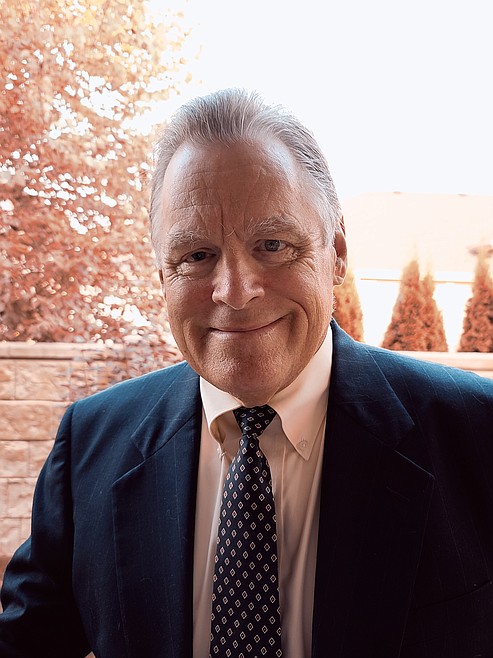OPINION: Critchfield ponders ‘new culture’ for education
Debbie Critchfield of Oakley, the Republican candidate for state superintendent of public instruction, isn’t running against the two-term incumbent that she defeated in May’s primary election. But she makes it clear that, if elected, it will not be business as usual in Idaho’s Department of Education.
Critchfield is telling voters — especially Republican educators who jumped ship and voted for Democratic candidates in the last three elections for state superintendent — that they can feel comfortable with the GOP candidate this time around.
State Superintendent Sherri Ybarra won two elections by the smallest of margins, with both races being declared “too close to call” the morning after the election. She was the only Republican who had any trouble winning races for the state constitutional offices.
Critchfield looks to win in a more convincing fashion against Democrat Terry Gilbert of Boise, a retired teacher.
“There were two attitudes about her,” Critchfield said of Ybarra. “People either knew nothing about her, or there were high negatives attached to her. A lot of promises were made, and nothing happened, or she took credit for what the governors or Legislature did. Legislators were frustrated. They want someone who will bring ideas to them and someone who will work with them when they have ideas.”
Critchfield had more than 30 Republican legislators endorsing her campaign in the primary and, if elected, she thinks she’ll have appeal with some Democratic lawmakers as well.
“I will have a different approach,” says Critchfield, a former president of the State Board of Education. “There will be a different culture in the department. I will work with the governor, and I will need support from all branches of government. A key part also is the working relationship with the Board of Education, which is overlooked a lot. It was extremely difficult for board members to work with (Ybarra).”
Regardless of who wins — whether it’s Critchfield or Gilbert — Idaho will have a new state superintendent leading the Department of Education. But as Critchfield says, the challenges of the job go beyond building working relationships with educators and political leaders.
“The bottom line for education in Idaho is that people are frustrated, and the frustration is not only with parents. Teachers are frustrated. Kids are frustrated and we can’t afford in any sense of the word to do business as usual,” Critchfield says. “We’ve got to bring education into the modern context. How do we make it more relevant for students who are graduating and getting jobs? How do we provide the tools for the modern classroom and our teachers? How are we interacting with our parents and communities to reflect their values? There are long-standing issues that are going to take solutions that, in some cases, we haven’t even thought of yet — everything from funding to school safety and security.”
Critchfield doesn’t pretend to have all the answers. But living in a rural community, she knows there are talented people throughout the state who are willing to work on solutions. Critchfield is the public information officer for Cassia County schools and is a former school board member for the district.
Her opponent has talked about a trigger law that would devote at least half of the state’s surplus to education and is backing the Quality Education Act promoted by Reclaim Idaho.
Critchfield rejects both ideas.
On the issue of the state surplus, Critchfield says, “to say that half should go to education … I don’t know what that number is. One of the issues we’ve had over time is that we don’t target where that money is going. We can’t just say that education needs more money. For what? And where? We have been putting millions of more dollars into education, yet people are still frustrated with the outcome.”
On the education initiative, she said, “I don’t believe we should have a massive tax hike with the kind of surplus we have and people dealing with inflation. That’s not the solution.”
Those are topics that can, and should be, kicked around in debates. And Critchfield, to her credit, plans to discuss these issues with Gilbert in televised debates. She says she’s also anxious to hear how Gilbert “stands up” for policies imposed by the Biden administration.
Yes, debates do serve a valuable purpose.
• • •
Chuck Malloy is a longtime Idaho journalist and columnist. He may be reached at ctmalloy@outlook.com

